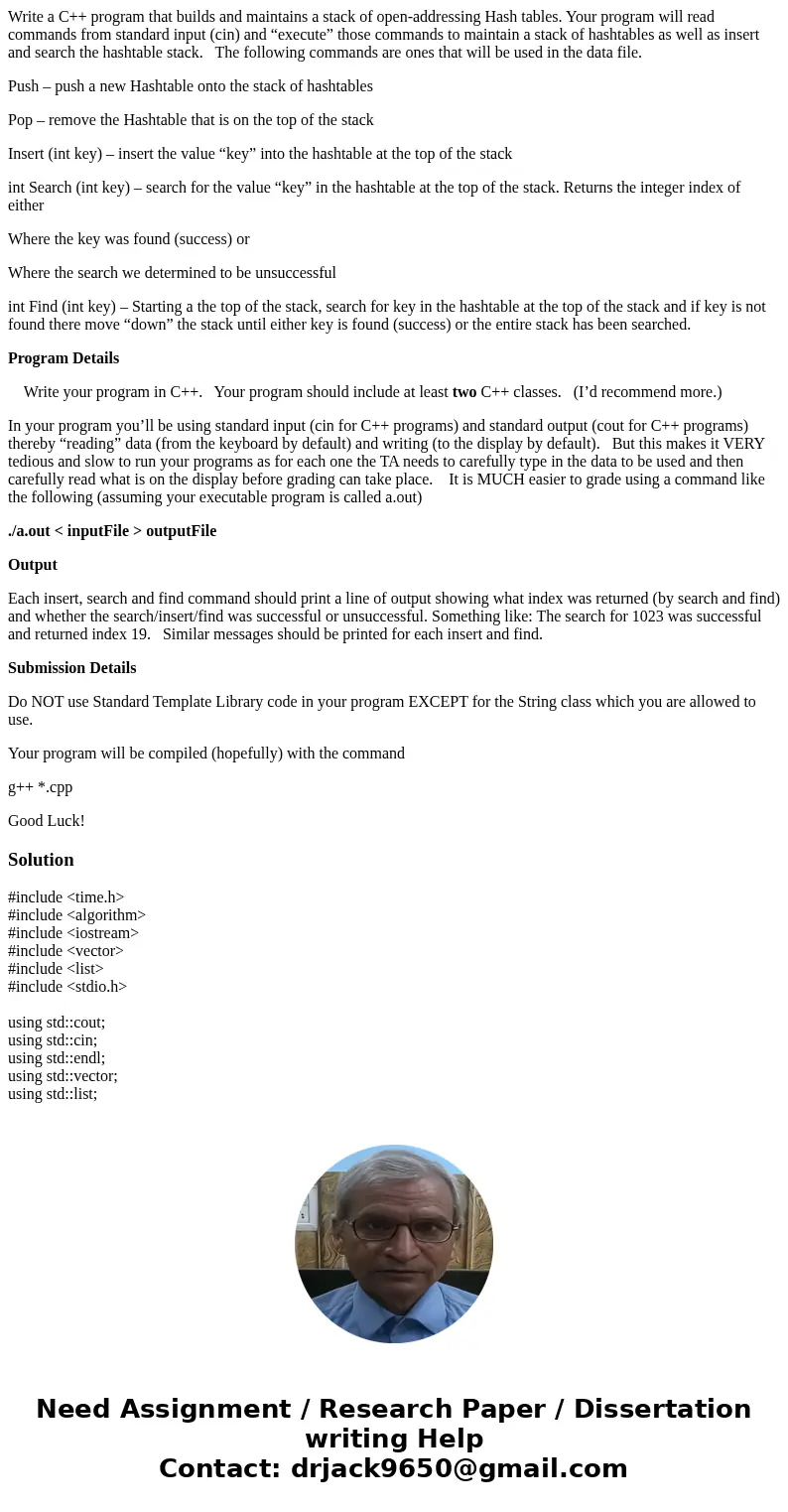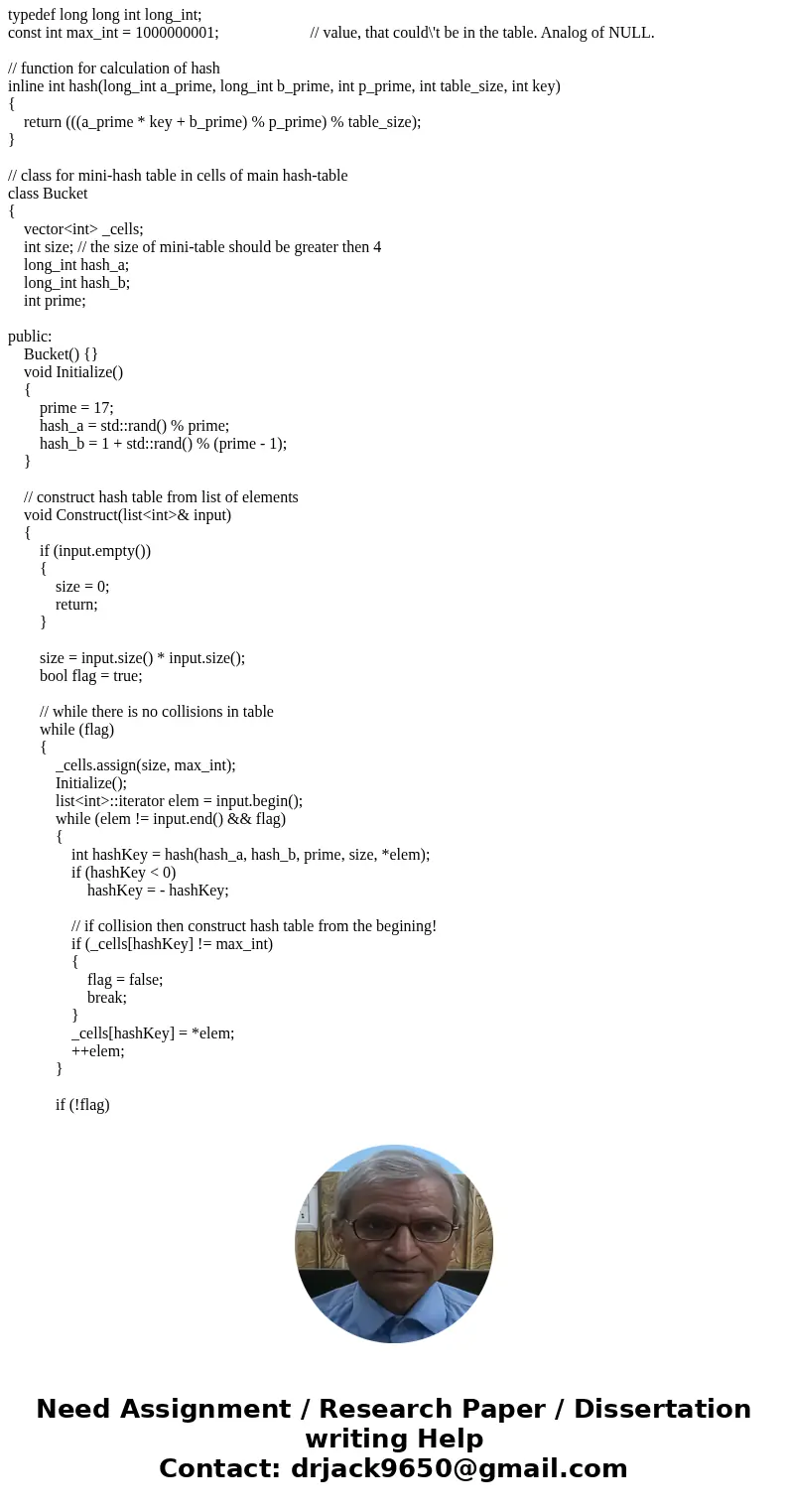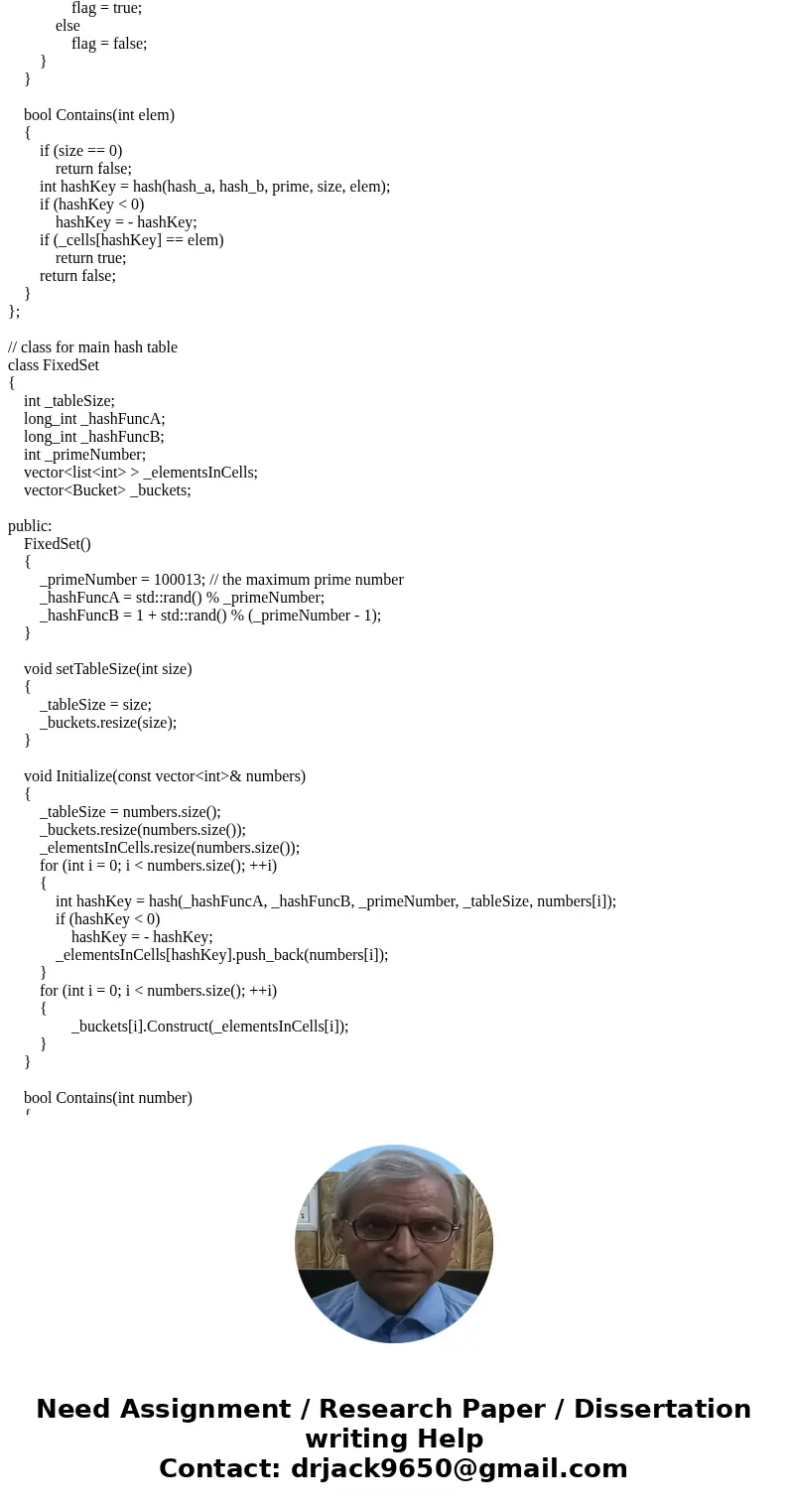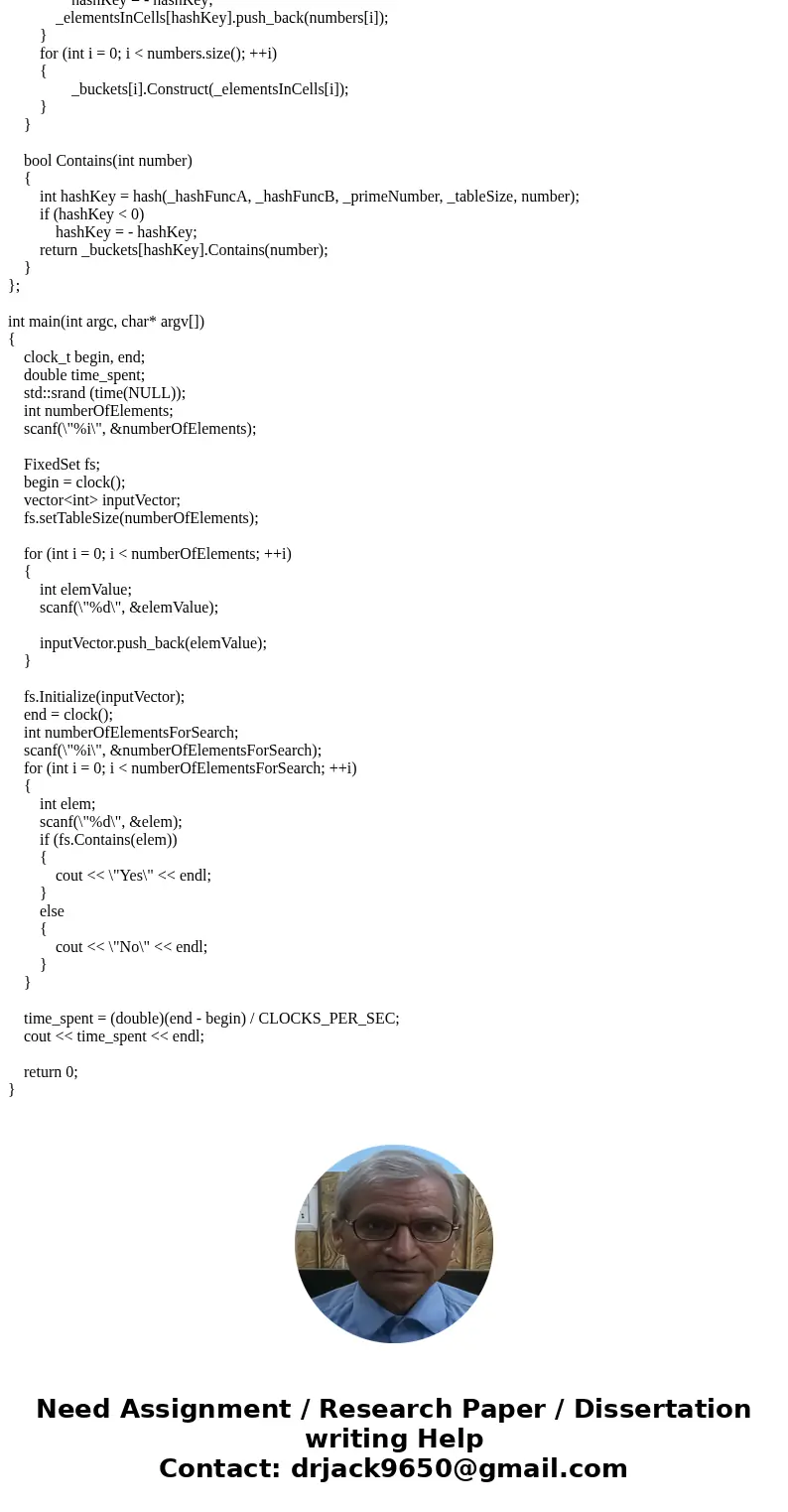Write a C program that builds and maintains a stack of opena
Write a C++ program that builds and maintains a stack of open-addressing Hash tables. Your program will read commands from standard input (cin) and “execute” those commands to maintain a stack of hashtables as well as insert and search the hashtable stack. The following commands are ones that will be used in the data file.
Push – push a new Hashtable onto the stack of hashtables
Pop – remove the Hashtable that is on the top of the stack
Insert (int key) – insert the value “key” into the hashtable at the top of the stack
int Search (int key) – search for the value “key” in the hashtable at the top of the stack. Returns the integer index of either
Where the key was found (success) or
Where the search we determined to be unsuccessful
int Find (int key) – Starting a the top of the stack, search for key in the hashtable at the top of the stack and if key is not found there move “down” the stack until either key is found (success) or the entire stack has been searched.
Program Details
Write your program in C++. Your program should include at least two C++ classes. (I’d recommend more.)
In your program you’ll be using standard input (cin for C++ programs) and standard output (cout for C++ programs) thereby “reading” data (from the keyboard by default) and writing (to the display by default). But this makes it VERY tedious and slow to run your programs as for each one the TA needs to carefully type in the data to be used and then carefully read what is on the display before grading can take place. It is MUCH easier to grade using a command like the following (assuming your executable program is called a.out)
./a.out < inputFile > outputFile
Output
Each insert, search and find command should print a line of output showing what index was returned (by search and find) and whether the search/insert/find was successful or unsuccessful. Something like: The search for 1023 was successful and returned index 19. Similar messages should be printed for each insert and find.
Submission Details
Do NOT use Standard Template Library code in your program EXCEPT for the String class which you are allowed to use.
Your program will be compiled (hopefully) with the command
g++ *.cpp
Good Luck!
Solution
#include <time.h>
#include <algorithm>
#include <iostream>
#include <vector>
#include <list>
#include <stdio.h>
using std::cout;
using std::cin;
using std::endl;
using std::vector;
using std::list;
typedef long long int long_int;
const int max_int = 1000000001; // value, that could\'t be in the table. Analog of NULL.
// function for calculation of hash
inline int hash(long_int a_prime, long_int b_prime, int p_prime, int table_size, int key)
{
return (((a_prime * key + b_prime) % p_prime) % table_size);
}
// class for mini-hash table in cells of main hash-table
class Bucket
{
vector<int> _cells;
int size; // the size of mini-table should be greater then 4
long_int hash_a;
long_int hash_b;
int prime;
public:
Bucket() {}
void Initialize()
{
prime = 17;
hash_a = std::rand() % prime;
hash_b = 1 + std::rand() % (prime - 1);
}
// construct hash table from list of elements
void Construct(list<int>& input)
{
if (input.empty())
{
size = 0;
return;
}
size = input.size() * input.size();
bool flag = true;
// while there is no collisions in table
while (flag)
{
_cells.assign(size, max_int);
Initialize();
list<int>::iterator elem = input.begin();
while (elem != input.end() && flag)
{
int hashKey = hash(hash_a, hash_b, prime, size, *elem);
if (hashKey < 0)
hashKey = - hashKey;
// if collision then construct hash table from the begining!
if (_cells[hashKey] != max_int)
{
flag = false;
break;
}
_cells[hashKey] = *elem;
++elem;
}
if (!flag)
flag = true;
else
flag = false;
}
}
bool Contains(int elem)
{
if (size == 0)
return false;
int hashKey = hash(hash_a, hash_b, prime, size, elem);
if (hashKey < 0)
hashKey = - hashKey;
if (_cells[hashKey] == elem)
return true;
return false;
}
};
// class for main hash table
class FixedSet
{
int _tableSize;
long_int _hashFuncA;
long_int _hashFuncB;
int _primeNumber;
vector<list<int> > _elementsInCells;
vector<Bucket> _buckets;
public:
FixedSet()
{
_primeNumber = 100013; // the maximum prime number
_hashFuncA = std::rand() % _primeNumber;
_hashFuncB = 1 + std::rand() % (_primeNumber - 1);
}
void setTableSize(int size)
{
_tableSize = size;
_buckets.resize(size);
}
void Initialize(const vector<int>& numbers)
{
_tableSize = numbers.size();
_buckets.resize(numbers.size());
_elementsInCells.resize(numbers.size());
for (int i = 0; i < numbers.size(); ++i)
{
int hashKey = hash(_hashFuncA, _hashFuncB, _primeNumber, _tableSize, numbers[i]);
if (hashKey < 0)
hashKey = - hashKey;
_elementsInCells[hashKey].push_back(numbers[i]);
}
for (int i = 0; i < numbers.size(); ++i)
{
_buckets[i].Construct(_elementsInCells[i]);
}
}
bool Contains(int number)
{
int hashKey = hash(_hashFuncA, _hashFuncB, _primeNumber, _tableSize, number);
if (hashKey < 0)
hashKey = - hashKey;
return _buckets[hashKey].Contains(number);
}
};
int main(int argc, char* argv[])
{
clock_t begin, end;
double time_spent;
std::srand (time(NULL));
int numberOfElements;
scanf(\"%i\", &numberOfElements);
FixedSet fs;
begin = clock();
vector<int> inputVector;
fs.setTableSize(numberOfElements);
for (int i = 0; i < numberOfElements; ++i)
{
int elemValue;
scanf(\"%d\", &elemValue);
inputVector.push_back(elemValue);
}
fs.Initialize(inputVector);
end = clock();
int numberOfElementsForSearch;
scanf(\"%i\", &numberOfElementsForSearch);
for (int i = 0; i < numberOfElementsForSearch; ++i)
{
int elem;
scanf(\"%d\", &elem);
if (fs.Contains(elem))
{
cout << \"Yes\" << endl;
}
else
{
cout << \"No\" << endl;
}
}
time_spent = (double)(end - begin) / CLOCKS_PER_SEC;
cout << time_spent << endl;
return 0;
}




 Homework Sourse
Homework Sourse